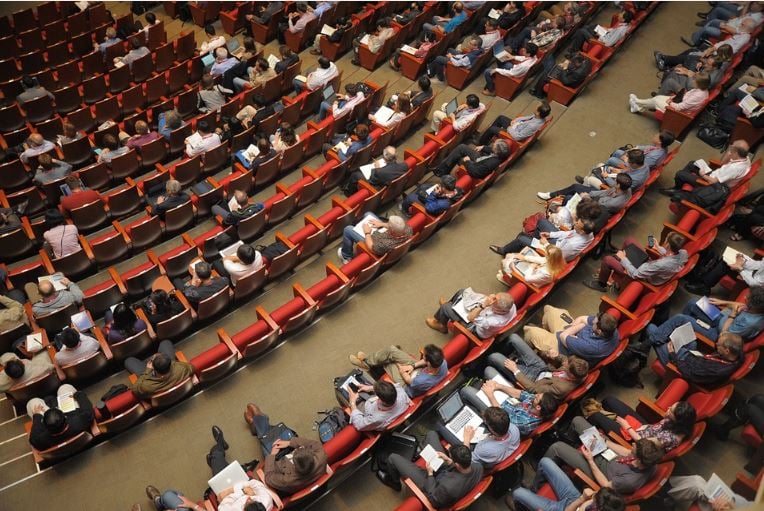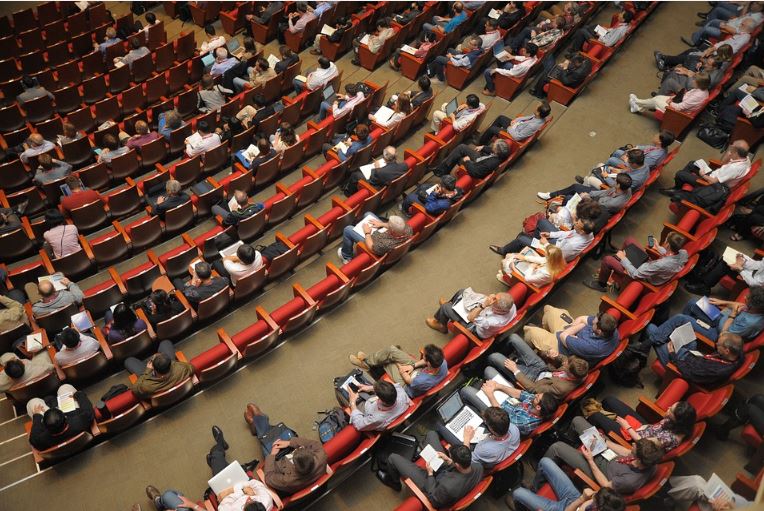There are several reasons why attending medical and scientific conferences can be good for a career. First, attending conferences allows medical professionals and scientists to stay up-to-date on the latest developments in specific fields. These conferences are particularly important in fields like medicine, where new research and treatments are constantly emerging. By attending conferences, professionals can learn about these new developments and incorporate them into their practice.

It is essential to carefully consider your options and choose conferences that will benefit you the most. If you are interested in attending a medical or scientific conference, you can search for conferences in your field by checking relevant professional organizations or websites. You can also ask colleagues or mentors for recommendations. When choosing a conference to attend, consider factors such as the conference’s focus, the speakers and sessions offered, and the location and cost.
Additionally, attending conferences provides an opportunity for professionals to network. Conferences can lead to collaboration on research projects, job opportunities, and other professional opportunities. It also provides a chance to share ideas and learn from the experiences of others. Here are a few tips to help you make the most of networking opportunities at these conferences:
Plan ahead and research the conference schedule. Look for networking events and sessions that align with your interests and goals. This will help you make the most of your time and focus on meeting people most relevant to your work.
Bring business cards and other materials that you can use to share your contact information and research. These can be useful for introducing yourself and following up with people you meet.
Network with a purpose. Have specific goals for the conference, such as meeting potential collaborators, learning about a particular topic, or sharing your research. This will help you focus your networking efforts and make the most of your time.
Be proactive and approach people. Don’t be afraid to introduce yourself and start a conversation. Conferences are an excellent opportunity to meet new people, so don’t hesitate to reach out.
Follow up with the people you meet. After the conference, be sure to send a quick email or connect on social media to continue the conversation and build on the connections you made. This will help you maintain the relationships you formed and potentially open up new opportunities.
Attending conferences can also showcase your work and achievements. Many conferences include breakout sessions or oral presentations where attendees can present their research and findings to others in their field. This can build your reputation and showcase your expertise to others in your field or area of expertise. Here are some of the key people who can benefit from attending these conferences:
Medical professionals: Doctors, nurses, and other healthcare providers can benefit from attending medical conferences. These conferences provide a platform for medical professionals to learn about the latest advances in their field, network with colleagues and discuss best practices and treatment protocols. To find a right conference for you, you can visit www.coatconnect.com.
Scientists: Scientists who work in medicine-related fields, such as biology, chemistry, or pharmacology, can benefit from attending medical and scientific conferences. These conferences allow scientists to present their work, learn about new developments in their field, and network with other researchers.
Students: Students studying medicine or a related field can benefit from attending medical and scientific conferences. These conferences can provide valuable exposure to the latest research and developments in the area and networking opportunities with potential mentors and employers.
Healthcare organizations: Healthcare organizations, such as hospitals, clinics, and research institutions, can benefit from attending medical and scientific conferences. These conferences provide a platform for healthcare organizations to showcase their work, learn about new developments in the field, and network with potential partners and collaborators.
Industry representatives: Representatives from companies that produce medical products or services can benefit from attending medical and scientific conferences. These conferences allow industry representatives to learn about new developments in the field and network with potential customers and partners.
Medical and scientific conferences are events where professionals in the medical and scientific fields come together to present and discuss their research, findings, and advancements in their respective fields. While there are many similarities between these two types of conferences, there are also some key differences.
One of the main differences between medical and scientific conferences is the focus of the research and presentations. Medical conferences typically focus on the latest developments and innovations in the field of medicine, including new treatments and technologies. In contrast, scientific conferences may cover various topics and disciplines, including biology, chemistry, physics, and engineering.
Another difference is the target audience for the conferences. Medical conferences are often attended by medical professionals such as doctors, nurses, and other healthcare workers, while scientific conferences may attract a broader range of attendees, including scientists, researchers, and students from various fields of study.
The format of the conferences may also differ. Medical conferences often include keynote speeches, and panel discussions, while scientific conferences may include hands-on demonstrations, workshops, and more traditional presentations.
Overall, medical and scientific conferences are important events for professionals in these fields to come together, share their research, and learn from each other. While there are some differences, they both play a crucial role in advancing the understanding and development of new treatments and technologies in their respective fields.
Attending medical and scientific conferences can benefit individuals and organizations involved in the medical and scientific fields. These conferences can provide opportunities for learning, networking, and staying up-to-date on the latest developments in the area.
Interesting Related Article: “Why You Should Use a Conference Management Company“















